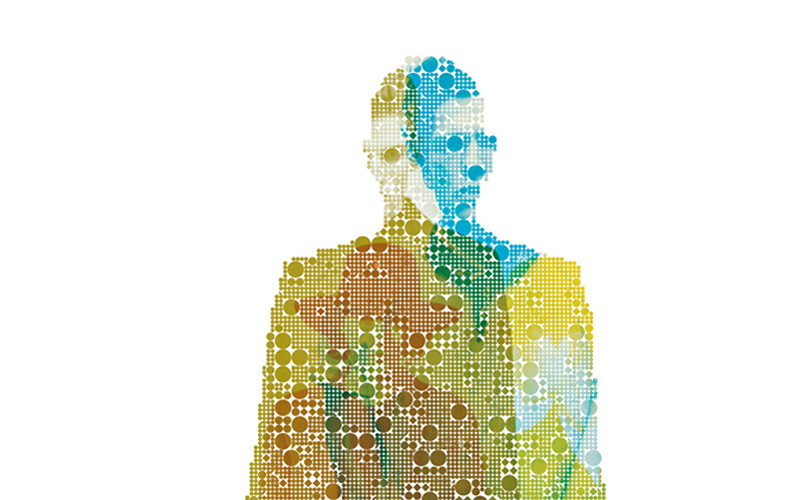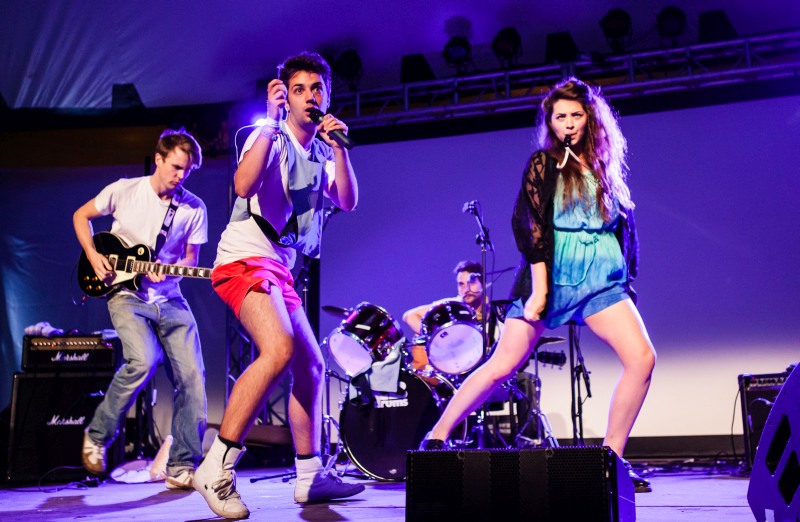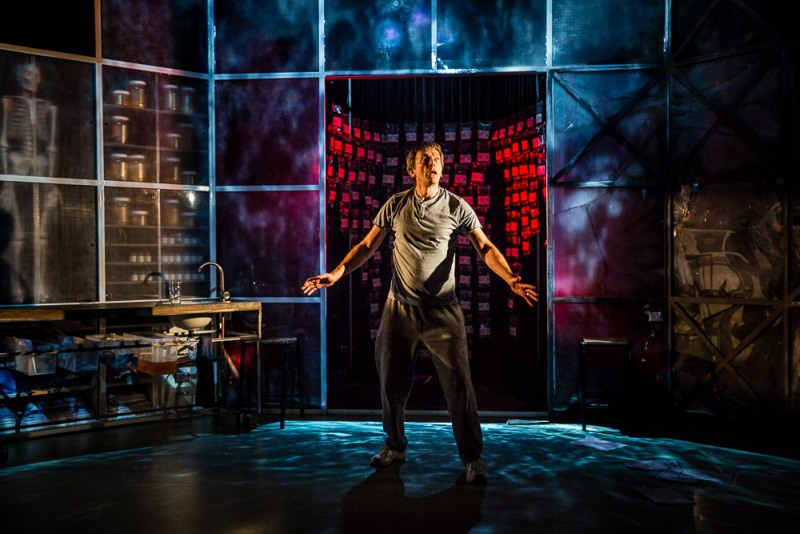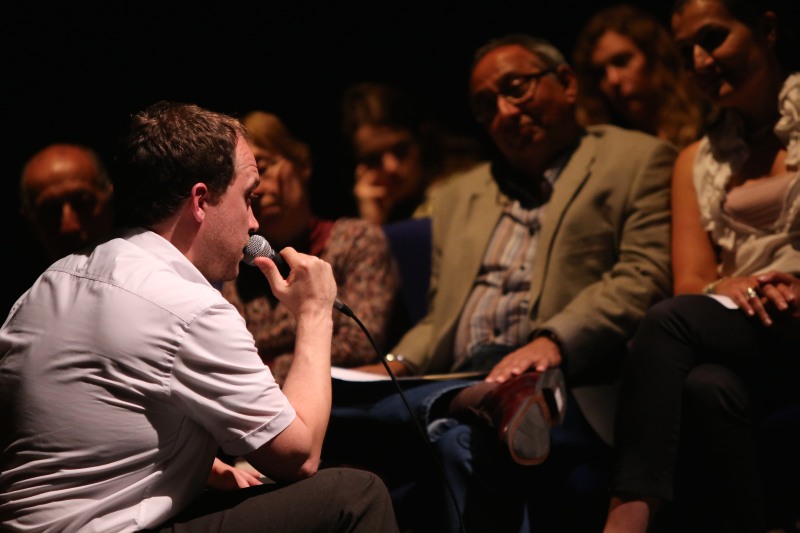 The audience members pour out elated after this show. ‘That was amazing,’ one of them enthuses – incidentally the one who has actually taken part on the stage. ‘It’s one of those shows that’s going to be difficult to describe to people,’ says his friend. ‘One of those indie shows,’ they conclude.
The audience members pour out elated after this show. ‘That was amazing,’ one of them enthuses – incidentally the one who has actually taken part on the stage. ‘It’s one of those shows that’s going to be difficult to describe to people,’ says his friend. ‘One of those indie shows,’ they conclude.
Those already familiar with Nassim Soleimanpour’s 2012 hit White Rabbit Red Rabbit – which saw various famous actors take part without any rehearsal whatsoever – may not be surprised to learn that this piece too will keep us all on our toes. This time however, the Iranian playwright and the British director Ramin Gray contrive to turn the audience members into the main actors, helped along by a lone stage manager. The author is present as a recorded voice played back for the duration of most the show. This provides the story of a man with deteriorating eyesight trying to read Hamlet before he goes blind, interspersed with instructions for some games he has devised for the audience to play (often with their eyes closed).
This type of work is not entirely new in the UK – Rotozaza and Tim Crouch have played with similar conventions, moving the boundaries of what the audience might have thought possible in theatre and live performance. The interplay between the pre-recorded and the live, the preplanned and the spontaneous, creates a suspense and keeps the audience invested and involved. The point is that the result of this kind of experience strips the notion of theatre-going to its bare bones – imagination, conflict, play – elements which have been there for ever.
So the most important thing to say when describing this show to your friends is that this is a kind of theatre which restores joy to the often dreaded act of audience participation. And the reason is that we all go to the theatre wanting what we are seeing to succeed. Soleimanpour and Gray show us that if you lead the audience to believe that the success of the show really depends on them, they will be more than willing to help along.
Blind Hamlet is not entirely flawless – its narrative flow is occasionally contrived and sometimes the pre-recorded voice is pitched precariously between its desire to communicate (‘I wish I could see your face’ is the refrain of the opening section) and a radio drama style introversion. But its ambition and its overall achievement outweigh this.



